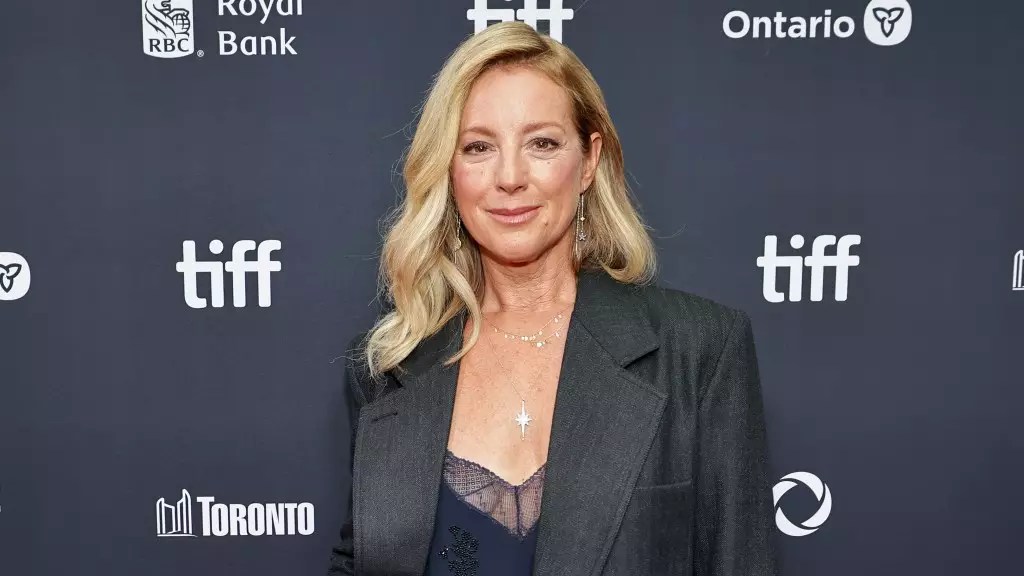In an era marked by relentless political polarization and a disturbing retreat from open dialogue, the recent events surrounding the Lilith Fair documentary premiere exemplify an alarming trend: the stifling of dissent and the suppression of artistic freedom. The decision by ABC News Studios to cancel the red carpet and the collective refusal of artists like Sarah McLachlan and Jewel to perform signals more than just a logistical hiccup; it is a symptomatic crisis threatening the core principles of free speech that underpin democratic societies. The silence enforced by corporate and political interests suggests an environment where speaking out becomes perilous, and conformity is rewarded at the expense of honest, diverse discourse.
This pattern reveals a willingness among powerful institutions to prioritize ideological uniformity over the right of individuals to express their truths. While some may dismiss this as a mere controversy over scheduling, it is indicative of a deeper erosion: the weakening of inclusive spaces where differing perspectives can coexist. The refusal of performers to take the stage, in support of free speech, demonstrates a rare act of courage—yet, it also underscores the perilous position all voices now find themselves in, vulnerable to censorship under the guise of maintaining social harmony or avoiding controversy.
The Role of Cultural Resistance in Protecting Democratic Freedoms
By choosing to stand in solidarity rather than perform, artists like McLachlan convey a powerful message: when those with influence refuse to remain silent in the face of repression, they engage in a vital act of cultural resistance. Her comments articulate a profound awareness of the ongoing threats to women’s rights, LGBTQ+ freedoms, and the fundamental right to free expression. These issues are interconnected; the marginalization of any group weakens the societal fabric, diminishing the space where democratic ideals flourish.
The decision to forego performance is not merely a symbolic gesture; it reaffirms the belief that art and activism are inseparable. When McLachlan speaks about music as a bridge to shared humanity, she emphasizes that sustaining open dialogues is crucial in resisting divisive narratives. Her call for kindness, empathy, and collective effort resonates deeply within center-left thought that advocates for inclusive progress. It recognizes that social change arises from confronting injustice head-on, even when that confrontation involves risking career comfort or public approval.
The Political and Media Landscape: A Dangerous Precedent
The controversy surrounding Kimmel’s suspension, rooted in his critiques of political figures and his handling of heated debates, highlights a troubling tendency to categorize certain viewpoints as unacceptable. The claims that his comments on Charlie Kirk, a figure recently assassinated in a political attack, amount to an attack on free speech, seem misguided when examined critically. Instead, they reveal how the political culture has become increasingly hostile to anyone daring to question the prevailing narrative, labeling dissent as dangerous or unpatriotic.
This suppression risks creating an environment where only dominant perspectives are safe to express, effectively silencing debates vital for a healthy democracy. The liberal center ought to stand against such overreach, advocating for a nuanced approach to free speech that recognizes the importance of vigorous debate and accountability. An unwavering commitment to these principles should not be confused with reckless provocation; rather, it must include defending the rights of all voices to be heard, especially those challenging mainstream narratives.
Progressive Integrity Versus Corporate Censorship
What is most troubling about recent developments is how corporate powers, ostensibly committed to progressive causes, appear willing to capitulate in the face of political intimidation. Canceling or suppressing events and performances under pressure feeds a culture of self-censorship that threatens to undo the very social progress many advocates fought hard to achieve. By conforming to such pressures, these institutions betray their own values—values rooted in a belief in free expression, social justice, and the democratization of culture.
In a healthy democracy, dissent fuels growth, and unpopular opinions serve as checks against tyranny. Suppressing them under the guise of protecting social harmony ultimately weakens societal resilience and erodes trust. It is imperative for supporters of liberalism in the center to resist this trend, recognizing that the fight for a more equitable and open society requires courageous defenders of free speech and varied perspectives. The alternative—where silence prevails—is a future where authoritarian tendencies flourish under the veneer of civility, and the diversity of thought is sacrificed for manufactured unity.

